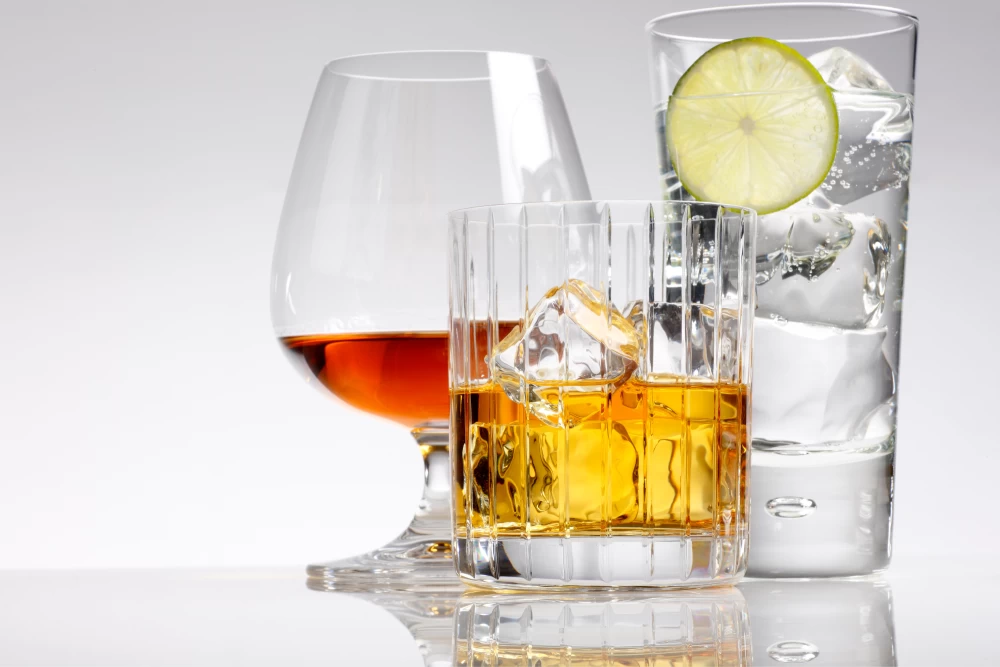
- 30th April 2023
Table of Contents
How does Intermittent Fasting work?
Cycles of fasting in between meals constitute the intermittent fasting diet. Fasting can last anywhere from 12 to 24 hours, and its purpose is to help one consume fewer calories. Intermittent fasting can be done in a variety of ways, such as the alternate-day fast, the 16/8 method, or the 5:2 diet. Intermittent fasting has been shown to have many health benefits, including increased insulin sensitivity, decreased body fat, and less inflammation. But it's important to be careful when drinking alcohol while intermittent fasting. Intense hunger and diminished satiety hormones are two ways that alcohol can interfere with the body's fasting response. During non-fasting times, alcohol consumption can lead to dehydration and nutrient deficiencies if not accompanied by healthy dietary choices. Therefore, those who engage in intermittent fasting would do well to keep in mind the timing and quantity of their alcoholic beverages.
Physical Effects of Alcohol
The way your body processes alcohol can be drastically altered if you drink while on an IF diet. With IF, you only eat during a certain time window every day, and for the rest of the time, your body goes into a fasted state. Consuming alcohol during this fasting period results in a faster absorption rate than at other times of the day. This means that one may experience the effects of alcohol more rapidly and to a greater degree. Drinking on an empty stomach can also heighten the euphoric effects of alcohol. If you want to drink alcohol while intermittent fasting, you should either eat before you drink or wait until after breaking your fast to do so. Additionally, it is crucial to stay hydrated when drinking during intermittent fasting, as dehydration can amplify the negative effects of alcohol consumption, such as hangovers. Overall, it is crucial to drink responsibly and take precautions, such as eating before drinking and staying hydrated during intermittent fasting, if you choose to do so. Consuming alcoholic beverages, of any kind, should be done so in moderation.

What Repercussions Do Fasting and Alcohol Have?
Weight loss and improved health are just two of the many reasons why intermittent fasting has gained popularity. However, many are curious about the effects of drinking alcohol while fasting. The truth is that alcohol consumption during intermittent fasting can alter the body's ability to process alcohol. Alcohol consumption is negatively impacted by fasting because glycogen stores in the liver are depleted. Therefore, drinking on an empty stomach may result in more rapid intoxication and a more severe hangover. In addition, alcohol consumption can upset the body's natural hormone balance, which could nullify the positive effects of fasting cycles. Alcohol consumption during fasting has additional negative effects, including a rise in insulin resistance and inflammation. Long-term effects on health could include conditions like type 2 diabetes and cardiovascular disease. As a result, pay attention to how much and when you drink when engaging in intermittent fasting.
Drinking while intermittently fasting: benefits and drawbacks
The increased risk of dehydration is a major concern for people who combine intermittent fasting and drinking. Alcohol is a diuretic, so it can speed up your fluid loss and make you urinate more often than usual. Combined with the loss of fluids experienced during a fast, this can increase the risk of serious health complications. The risk of liver damage increases when alcohol is combined with intermittent fasting. When you're fasting, your liver has to work harder to convert fat stores into usable fuel. However, when alcohol is present, the liver shifts its focus to metabolising the alcohol rather than the stored fats. This can increase the and the likelihood of permanent damage. Last but not least, some people may discover that drinking while intermittent fasting causes them to overeat or make poor food choices. Fasting's hunger pangs, combined with alcohol's sedative effects, can make it difficult to maintain healthy eating habits, potentially leading to weight gain and other unintended consequences. In sum, it's important to proceed with caution and be aware of any negative effects these practises may have on your overall health and wellbeing, despite the fact that there may be some potential benefits to combining them in moderation.
Finding a Happy Medium
When it comes to both alcohol constrain on your liversumption and intermittent fasting, moderation is key. While there are clear health benefits to be gained from both of these practises, there are also risks involved if either are pursued to extremes or without due care. Alcohol slows the body's metabolism and decreases nutrient absorption, both of which are central to intermittent fasting's health benefits. It's important to watch how much and when you drink alcohol while intermittent fasting. Consuming large quantities of alcohol while fasting increases the risk of dehydration, low blood sugar, and liver damage. In addition, the positive effects of intermittent fasting on insulin sensitivity can be nullified if alcoholic beverages are consumed during eating periods. If you want to strike a good balance between fasting and drinking, experts say you should limit yourself to one or two drinks per day when you're not fasting. It's also important to break your fast with a healthy meal rather than snacking on high-calorie foods or consuming more alcohol, and to drink water before and after drinking alcohol. The key to staying healthy while engaging in both of these routines at once is moderation, so be sure to pay attention to your body for cues about when to take a break from one or the other, or from both.

Keeping a Healthy Check on Both
It's important to be aware of the effects of both alcohol and intermittent fasting on the body before attempting to strike a healthy balance between the two. Short-term caloric restriction, as in intermittent fasting, has been linked to metabolic reprogramming. However, alcohol is metabolised in a unique way and has been linked to both physical and mental health risks. Avoiding alcoholic beverages during fasts is advised so that both functions can be maintained in a healthy manner. Fasting before drinking can increase the rate at which alcohol is absorbed by the blood and thus the intensity of the drunkenness you experience. When not fasting, it is essential to maintain a healthy body by drinking plenty of water and eating nutritious foods. If you want to drink while intermittent fasting, do so in moderation. Limit yourself to one or two drinks at a time and opt for wine or beer over stronger liquors. And remember to always pay attention to how your body reacts to changes in your diet and lifestyle; if drinking alcohol while intermittent fasting makes you feel ill, you should probably avoid doing so in the future.














